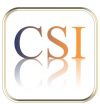Course Fee: $459 (Canadian currency)
Certificate in Coaching
A fully comprehensive Coaching Practitioner Certification program.
Start your professional coaching journey by embarking on this program. It is specifically designed to develop the skills sets, and give you the prerequisite knowledge you will need, to work in this growing and life-changing field. Topic you will study include: An introduction to coaching; the coaching relationship; learning stages and styles; coaching models, techniques and skills; core values in coaching; ethics in coaching; coaching groups, executive coaching, and the importance of branding.
You are free to commence at a time that suits your schedule and given six months to complete the course. Full tutor support is provided by a coaching mentor. Upon satisfactory completion of the course a certificate will be mailed out to you.
SYLLABUS
Module 1: Introduction to Coaching
Topics Studied
- What is coaching
- Different types of coaching
- Some influential forces
- What do coaches do?
- What makes an effective coach?
- Introducing Egan’s The Skilled Helper Model
Learning Outcomes and Summary of Objectives
Upon successful completion of this learning module, the student should be able to:
- List specialized areas of coaching.
- Identify the main tasks of a coach.
- Describe Egan’s The Skilled Helper Model
Module 2: The Coaching Relationship
Topics Studied
- The role of relationship
- The ideal client
- Developing a winning relationship
- Stage 1: Establishing the initial relationship
- Stage 2: Further developing the relationship
- Stage 3: Developing a vision for change
- Stage 4: Formulating a realistic plan for change
- Stage 5: Working the plan
- Stage 6: Confronting and dealing with resistance
- Stage 7: Endings and follow-up
- Pre-coaching consultation, contracts and the new client questionnaire
- Power questions
Learning Outcomes and Summary of Objectives
Upon successful completion of this learning module, the student should be able to:
- Demonstrate the fundamental importance of relationship.
- Describe the qualities of an “ideal” client.
- Analyse the processes involved in creating a winning client-coach relationship.
Module 3: The Learning Process
Topics Studied
- The four key stages of learning
- The learning process
- Identifying your learning style (activist, reflector, theorist or pragmatist)
- Are you a visual, auditory or kinesthetic learner?
- Potential problems in learning
- The Learning Efficiency Matrix
- The four stages of the coaching process
- Taking a look at coaching styles
Learning Outcomes and Summary of Objectives
Upon successful completion of this learning module, the student should be able to:
- List the four stages of learning.
- Illustrate different learning styles.
- Explain what is meant by the term “learning inefficiencies”.
Module 4: Coaching Models, Techniques and Tools
Topics Studied
- What is the Practice Spiral?
- Applying the Skills Competency Framework
- Applying The 3-D Technique
- Applying The GROW Technique
Learning Outcomes and Summary of Objectives
Upon successful completion of this learning module, the student should be able to:
- Describe the Practice Spiral.
- Apply the Skills Competency Framework.
- Implement The 3-D Technique.
Module 5: Coaching Values
Topics Studied
- Introducing core values
- Core Value 1: Personal identity
- Core Value 2: Achievement
- Core Value 3: Attachment and intimacy
- Core Value 4: Self-expression, play and creativity
- Core Value 5: The search for meaning
- Core Value 6: Giving and serving
- Questions to help clients assess their values
- Life scripts and cognitive conditioning
- Adhering to a coaching code of ethics
Learning Outcomes and Summary of Objectives
Upon successful completion of this learning module, the student should be able to:
- Describe Core Values 1 & 2: Personal identity and achievement.
- Discuss Core Values 3 & 4: Attachment and intimacy; and self-expression, play and creativity.
- Illustrate Core Values 5 & 6: The search for meaning; and giving and serving
Module 6: Coaching Groups, Executive Coaching and the Importance of Branding
Topics Studied
- Coaching groups – A different kind of challenge
- Tuckman’s stages of group development
- Group dynamics
- Maximizing performance
- Coaching in the corporate world
- Coaching for Senior Management
- Multicultural Considerations
- Branding, and why it matters
Learning Outcomes and Summary of Objectives
Upon successful completion of this learning module, the student should be able to:
- Describe Tuckman’s stages of group development.
- Explain what is meant by “coaching for performance”.
- Evaluate recent key changes in organisational coaching.
Suggested reading for the course
Parsloe, E. & Leedham, M. (2016). Coaching and Mentoring: Practical Techniques for Developing Learning and Performance (3rd Ed.). Kogan Page Limited: London.
Duration of the course
The course consists of six knowledge and practice-based learning modules (comprehensive course notes), supplemented with suggested background reading, reflection activities and submission of tutor-marked assignments. There is one marked assignment per module. Courses are offered on a part-time basis and are designed to be completed within six months. Many students prefer to complete their studies in a shorter time frame.
